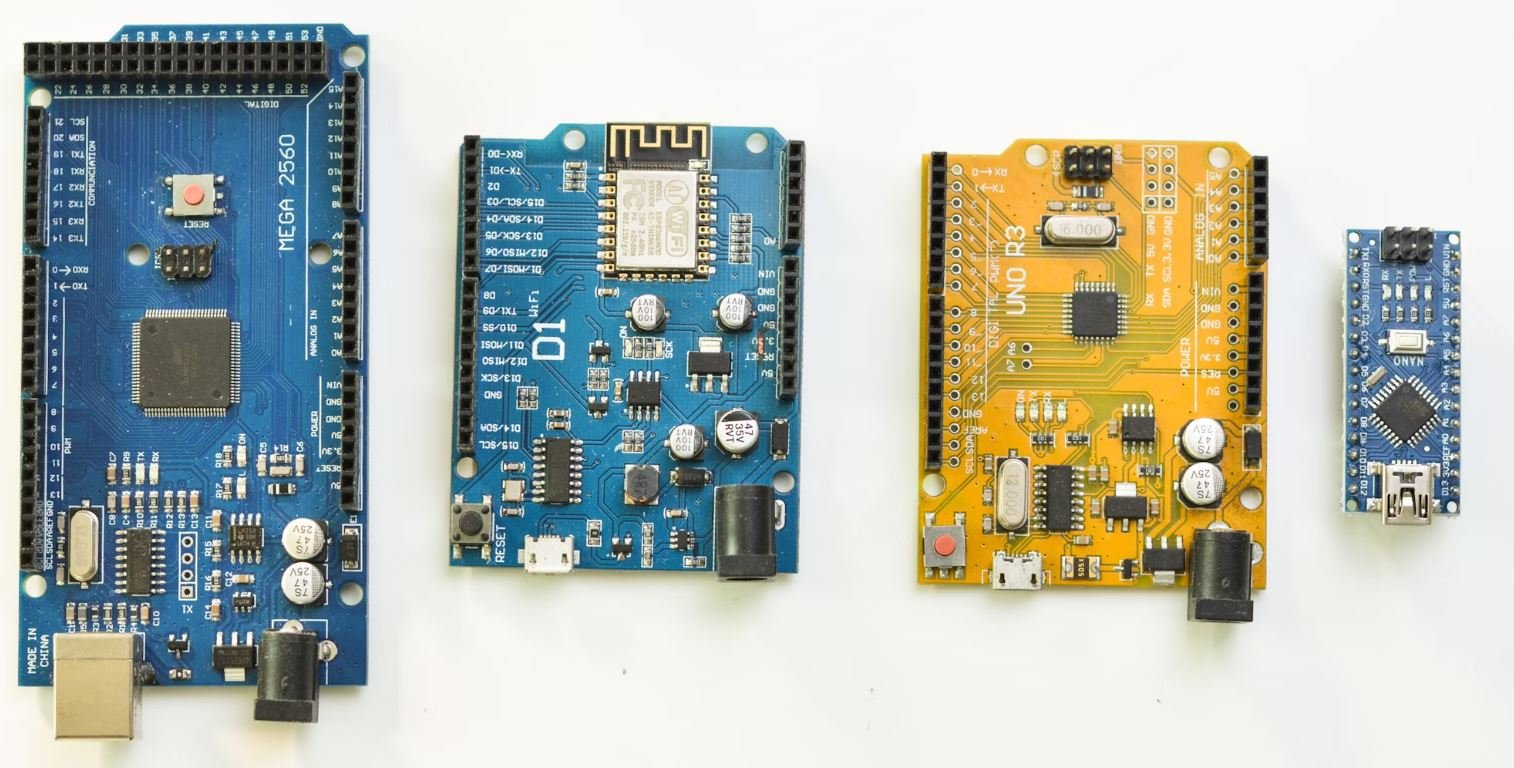AI Voice Over Meaning
With the rapid advancements in technology, artificial intelligence (AI) has become an integral part of our lives. AI voice over, also known as text-to-speech synthesis, is a technology that converts written text into spoken words using AI algorithms. This revolutionary technology has tremendous implications for various industries, including entertainment, marketing, e-learning, and accessibility.
Key Takeaways:
- AI voice over utilizes AI algorithms to convert written text into spoken words.
- This technology has wide-ranging applications in industries such as entertainment, marketing, e-learning, and accessibility.
- AI voice over offers flexibility, cost-efficiency, and scalability compared to traditional voice over methods.
- Considerations such as voice selection, naturalness, and language customization are essential for successful AI voice over implementation.
- AI voice over improves accessibility for individuals with visual impairments and language barriers.
- Advancements in AI continue to enhance the quality and realism of AI voice over systems.
AI voice over systems use sophisticated algorithms and deep learning techniques to create human-like voices. These systems analyze vast amounts of recorded speech data, learning the nuances and subtle variations in pronunciation, intonation, and inflection. The goal is to generate speech that sounds natural and indistinguishable from a human voice.
Artificial intelligence offers tremendous benefits in various industries that rely on voice over services. Traditional voice over methods often require hiring professional voice actors, scheduling recording sessions, and editing audio files. AI voice over eliminates the need for these time-consuming and costly processes. *AI voice over systems can generate speech in multiple languages, making it easier to reach global audiences with localized content.*
The use of AI voice over also brings numerous advantages for the accessibility of digital content. Individuals with visual impairments can consume written information in a more accessible format, enhancing their overall browsing experience. Language barriers also become less of an obstacle as AI voice over allows for real-time translation and localization of content.
Advantages of AI Voice Over:
- Flexibility: AI voice over systems can generate speech in different languages and adapt to various voice styles.
- Cost-efficiency: AI voice over eliminates the need for hiring voice actors and scheduling recording sessions.
- Scalability: AI voice over can handle large volumes of text and generate speech quickly.
- Consistency: AI voice over ensures consistent delivery and tone across multiple audio files.
- Customization: AI voice over allows for fine-tuning of voice characteristics to match specific brand requirements.
As AI voice over technology continues to evolve, developers and providers strive to improve the quality and realism of synthesized speech. Advancements in deep learning and neural networks have led to substantial improvements in voice quality, reducing robotic-sounding speech and increasing naturalness.
Implementing AI voice over requires careful consideration, including selecting the appropriate voice for a given context, ensuring naturalness, and customizing the language to fit the target audience. *For instance, a brand targeting a young demographic might opt for a more energetic and vibrant voice to convey its messaging.*
Comparison of Voice Over Methods:
| AI Voice Over | Traditional Voice Over | |
|---|---|---|
| Speed | Fast turnaround | Depends on actor availability and recording sessions |
| Cost | Cost-effective, no recurring fees | Costly, recurring fees for actors |
| Flexibility | Multiple languages, voice styles, and easy customization | Limited availability, difficult customization |
While AI voice over technology has come a long way, there are still challenges to address. Neural TTS models sometimes struggle with rare or complex words, leading to mispronunciations. Additionally, maintaining a consistent voice throughout a long narration can be a challenge due to the variability in synthesized speech.
Despite these challenges, AI voice over is rapidly gaining popularity and transforming the way we consume audio content. Its applications in entertainment, marketing, e-learning, and accessibility make it a valuable tool for businesses and individuals alike, opening up new possibilities and breaking down language barriers. The future of AI voice over holds exciting prospects as technology continues to advance.
As we move forward, AI voice over systems will undoubtedly play an increasingly significant role in the way we interact with and consume digital content.
Conclusion:
AI voice over technology has revolutionized the way we convert written text into spoken words. Its benefits in terms of flexibility, cost-efficiency, scalability, and accessibility are undeniable. With continuous advancements in AI, the quality and realism of synthesized speech continue to improve. Implementation considerations such as voice selection and language customization are crucial for successful AI voice over implementation. As technology evolves, AI voice over will continue to reshape the audio content landscape, providing better accessibility and enhancing communication across diverse audiences.

Common Misconceptions
When it comes to AI Voice Over, there are several common misconceptions that people often have. Let’s explore some of these misconceptions and provide some clarifications:
Misconception 1: AI Voice Over is capable of perfectly mimicking human voices
One of the biggest misconceptions about AI Voice Over is that it can flawlessly replicate human voices. While AI technology has advanced significantly, it is still not able to perfectly mimic all nuances and emotions in a human voice.
- AI Voice Over can sound robotic or unnatural
- AI Voice Over may lack the same level of expressiveness as a human voice
- AI Voice Over may struggle with pronouncing certain words or accents
Misconception 2: AI Voice Over will replace human voice actors
Another misconception is that AI Voice Over will render human voice actors obsolete. While AI Voice Over has made significant strides, it is still unable to fully replace the talent and versatility of human voice actors.
- Human voice actors bring a unique depth of emotion and authenticity to their performances
- Voice actors can adapt their voice based on client feedback and requirements
- Human voice actors can provide real-time adjustments and improvisations
Misconception 3: AI Voice Over is only suitable for certain industries or applications
Many people believe that AI Voice Over is primarily used in specific industries or applications such as automated customer support or virtual assistants. However, AI Voice Over has a wide range of uses and can benefit various sectors.
- AI Voice Over can be used in narration for e-learning courses and audiobooks
- AI Voice Over can assist in creating voice-overs for commercials and marketing content
- AI Voice Over can be utilized in entertainment industries like gaming and animation
Misconception 4: AI Voice Over is a purely automated process
Some people may assume that AI Voice Over is a fully automated process where you simply input text and get a perfect voice-over output. However, the reality is that AI Voice Over often requires human intervention and fine-tuning.
- Human intervention is necessary to ensure correct pronunciation and intonation
- AI Voice Over models need constant training and adjustment to improve performance
- Human editors are often involved in post-processing to enhance the AI-generated voice-over
Misconception 5: AI Voice Over is prohibitively expensive
Many assume that AI Voice Over services are prohibitively expensive, making them inaccessible for small businesses or individuals. While pricing may vary depending on the provider and specific requirements, the cost of AI Voice Over has become more affordable over time.
- There are various pricing models available, including pay-per-use and subscription options
- Some AI Voice Over platforms offer free usage for limited functionality or lower-quality output
- Competition among providers has driven down the costs and increased accessibility

How AI Voice Over is Transforming the Entertainment Industry
Artificial intelligence (AI) technology has revolutionized various aspects of the entertainment industry, including voice over services. With AI voice over, the process of narrating and dubbing voices for films, animations, video games, and more has become faster, more efficient, and highly accurate. In this article, we will explore ten fascinating applications and benefits of AI voice over.
1. Realistic Character Voices in Video Games
In video games, AI voice over enables developers to create lifelike character voices that seamlessly blend with the gameplay. Through advanced algorithms, AI can generate speech with unique accents, emotions, and personalities, enhancing the immersive gaming experience.
2. Multilingual Voice Over for International Films
AI voice over technology can accurately translate and dub films in multiple languages. This eliminates the need for human interpreters and voice actors, saving time and resources while ensuring high-quality localization for worldwide audiences.
3. Natural-Sounding Audiobooks
AI voice over enhances audiobooks by providing smooth and natural-sounding narration. With AI-generated voices, audiobook production becomes more efficient, enabling authors to reach a wider audience and deliver captivating storytelling experiences.
4. Accessibility for the Visually Impaired
AI voice over plays a crucial role in making content accessible for visually impaired individuals. By converting text into speech, AI technology enables visually impaired people to “read” articles, books, and other written materials with ease.
5. Time-Saving Dubbing for Film and TV Productions
AI voice over accelerates the dubbing process for film and TV productions. By automating voice synchronization and lip movement, AI technology reduces time and effort required for post-production, enabling faster release of dubbed content.
6. Personalized Navigation in Cars
AI voice over transforms the way we interact with in-car navigation systems. By providing personalized voice commands, AI helps drivers easily navigate, make calls, play music, and control various features hands-free, ensuring a safer driving experience.
7. Voice Assistants with Human-Like Voices
AI voice over enables voice assistants, such as Siri and Alexa, to have more natural and human-like voices. This enhances user experiences, making interactions with voice-activated devices more engaging, intuitive, and enjoyable.
8. Conversational Chatbots for Customer Service
AI-powered chatbots with voice capabilities are increasingly being used for customer service. These chatbots can generate responses using AI voice over, providing customers with interactive and human-like conversational experiences.
9. Dubbing Animated Movies with Ease
AI voice over simplifies the dubbing of animated movies. By automatically matching lip movements to generated voices, AI enables animators and filmmakers to seamlessly dub characters, saving time and maintaining lip sync accuracy.
10. Natural-Sounding Podcast Hosting
AI voice over has made podcast hosting more accessible and engaging. With AI-generated voices, podcast hosts can deliver professional-quality shows without the need for expensive recording equipment or hiring voice actors.
In conclusion, AI voice over technology is transforming the entertainment industry by revolutionizing the way voices are generated, dubbed, and narrated. From realistic character voices in video games to multilingual dubbing for international films, the applications of AI voice over are wide-ranging and highly impactful. Through its advancements, AI voice over is enabling faster production, enhanced accessibility, and more immersive experiences across various entertainment mediums.
Frequently Asked Questions
What is AI voice over?
AI voice over refers to the technology that uses artificial intelligence algorithms to automatically generate human-like voices for various applications, such as voice assistants, audiobooks, podcasts, and commercials. It involves the synthesis of speech using machine learning techniques to mimic natural human speech patterns and intonations.
How does AI voice over work?
AI voice over works by training deep neural networks on large quantities of voice data. The AI model learns to convert textual input into a set of voice parameters and then generates audio that sounds like a human speaking. The training process involves feeding the model with text-speech pairs and adjusting the network’s parameters to optimize the generated voice quality.
What are the benefits of using AI voice over?
Using AI voice over provides several benefits. It allows for faster and more efficient voice content production, as it eliminates the need for human voice actors. AI voice over also enables customization, as voices can be tailored to specific requirements and demographics. Additionally, AI voice over offers scalability, making it possible to generate voice content in multiple languages and dialects.
Is AI voice over as good as human voice over?
AI voice over has made significant advancements in recent years, producing voices that are increasingly indistinguishable from human voices. However, there are still areas where human voice over excels, such as conveying complex emotions or performing highly nuanced performances. AI voice over is best suited for applications that prioritize clarity, consistency, and efficiency.
What are the limitations of AI voice over?
AI voice over has a few limitations. One of the main challenges is the lack of perfect intonation and expressiveness, especially when compared to experienced human voice actors. Accents and dialects that fall outside the training data can also pose challenges for AI-generated voices. Additionally, certain voices or languages may require more training data and fine-tuning to achieve satisfactory results.
Does AI voice over have ethical implications?
AI voice over does have ethical implications that should be considered. The ability to generate realistic voices can potentially lead to misuse, such as deepfake audios or impersonations. Privacy concerns also arise when AI-generated voices are used to imitate real people without their consent. It is important to use AI voice over responsibly and with transparency to avoid potential ethical issues.
Can AI voice over be used commercially?
Yes, AI voice over can be used commercially. It offers cost savings and efficiency in generating voice content for various commercial applications, including advertisements, phone systems, and automated customer service. However, it is important to comply with copyright and licensing requirements when using AI-generated voices for commercial purposes.
Are there any legal considerations when using AI voice over?
Legal considerations exist when using AI voice over, particularly regarding intellectual property rights and privacy laws. It is essential to ensure that the text used for synthesis does not infringe copyright or violate any laws. When using AI-generated voices, it is advisable to obtain proper licensing or permissions and clearly disclose if the voice is artificially generated.
Can AI voice over be used for dubbing or localization?
Yes, AI voice over can be used for dubbing or localization. It allows for the efficient translation of content into different languages while maintaining the original voice style. With AI voice over, producers can easily adapt movies, TV shows, or video games for international audiences by generating voice performances in the desired language without the need for traditional human dubbing.
Is AI voice over improving over time?
Yes, AI voice over is improving over time as researchers continue to develop more advanced techniques and models. With ongoing advancements in deep learning, natural language processing, and audio synthesis, the quality, realism, and expressiveness of AI-generated voices are constantly improving. Researchers also focus on reducing biases and improving diversity in AI voice over to meet evolving societal needs.




